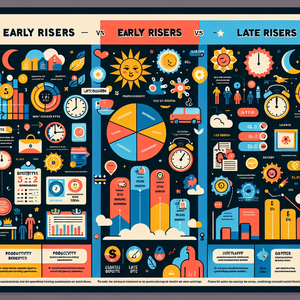When Therapy Meets Antiquity: The Revival of Ancient Practices in Modern Psychological Healing

Latin, often relegated to the realm of academia or forgotten altogether, holds a unique power in its precision and emotional depth. While modern languages can be laden with ambiguities or dulled by overuse, Latin offers a poetic cadence and clarity that invites deeper self-exploration. Words like *“sollicitudo”* (anxiety) or *“laetitia”* (joy) encapsulate complex emotional states in a way that feels timeless and dignified. For clients in therapy, translating their emotions into Latin is not merely an intellectual exercise—it’s an opportunity to pause and engage with their feelings on a more mindful level. This process of translation slows the pace of a session, encouraging clients to articulate their emotions with greater care and intentionality. When asked, “How are you feeling?” a client cannot simply reply, “I’m fine.” Instead, they are encouraged to explore and name their feelings in a way that demands reflection and precision. This practice also creates a sense of detachment from overwhelming emotions. By framing their inner turmoil or happiness in an ancient language, clients can view their feelings through a more objective lens. Many report that this perspective helps them analyze their experiences with clarity, reducing emotional reactivity and fostering a deeper understanding of their inner world. Furthermore, the use of Latin imbues the therapy process with a sense of gravitas. Clients often describe feeling that their emotions, when named in Latin, carry a timeless dignity that connects them to the broader human condition—a connection that fosters resilience and a sense of belonging.
The Psychology of Penmanship
In an era dominated by keyboards and touchscreens, the psychologist’s choice to eschew ballpoint pens for fountain pens or even quills might seem quaint or eccentric. However, this decision stems from a thoughtful critique of modernity and a commitment to fostering mindfulness. The act of writing by hand, particularly with tools that require care and skill, creates a meditative experience. The deliberate rhythm of dipping a quill into ink or the sensation of a fountain pen gliding across paper draws the writer into the present moment, transforming writing into an intentional act of creation. For clients, this tactile experience can be transformative. Unlike the fleeting nature of digital text, where words can be erased with a keystroke, the permanence of ink on paper reinforces the idea that their thoughts and emotions are valuable and worthy of preservation. Writing by hand also slows down the thought process, allowing clients to reflect more deeply on their feelings before committing them to paper. This practice becomes a ritual of self-expression, a way to honor the complexity of their emotional experiences. The psychologist’s tools also carry symbolic weight. Fountain pens and quills evoke a sense of craftsmanship and sustainability, standing in quiet opposition to the disposability of modern life. This philosophy often inspires clients to examine their own habits and choices, encouraging mindfulness in areas beyond the therapy session. By rejecting the fast-paced, throwaway culture of contemporary living, the psychologist invites clients to embrace a slower, more intentional way of being.
Bridging the Ancient and the Modern
While this therapeutic approach is steeped in antiquity, it is far from outdated. On the contrary, it addresses some of the most pressing psychological needs of the modern era. In a world dominated by constant distractions, superficial connections, and the pressure to multitask, the practice of slowing down and engaging with timeless traditions offers a much-needed reprieve. Clients often describe feeling grounded after a session, as though they’ve stepped out of the chaos of modern life and reconnected with something enduring and meaningful. Moreover, this approach challenges the assumption that progress requires abandoning the past in favor of the new. By integrating ancient practices into modern therapy, the psychologist demonstrates that the wisdom of antiquity still holds relevance. Human nature, after all, has remained largely unchanged over millennia. The same struggles with love, fear, grief, and joy that were experienced in ancient Rome persist today, and the insights of the past can still illuminate our paths forward.
A Journey Beyond Time
Therapy sessions with this psychologist are not simply conversations—they are journeys into the past and the self. Clients leave with more than just a deeper understanding of their emotions; they also gain a renewed appreciation for the beauty and complexity of the human experience. By weaving classical language and traditional tools into therapy, the psychologist transforms the process into an art form, a celebration of what it means to be human. In a world that often prioritizes speed and efficiency over depth and meaning, this approach offers a refreshing alternative. It invites us to slow down, to honor the past, and to rediscover the richness of language, craft, and tradition. And in doing so, it reminds us that the keys to navigating the challenges of the modern world may lie not in cutting-edge technologies, but in the timeless practices of the past. So, if you ever find yourself overwhelmed by the frenetic pace of modern life, consider taking a page from this psychologist’s book—or perhaps a scroll from their parchment. You may discover that the path to inner peace and emotional clarity lies not in the latest app or gadget, but in the wisdom of antiquity.
The revival of ancient practices in modern therapy not only bridges the gap between the past and present but also offers profound insights into the human condition. By embracing classical languages and traditional tools, this approach provides a timeless and transformative path to emotional clarity and resilience.
Expressive Arts Therapist
Hospitals, mental health clinics, and private practices
Core Responsibilities
Integrate creative modalities such as art, music, and writing into therapeutic sessions to help clients express emotions and process experiences.
Develop individualized treatment plans combining traditional psychotherapy with artistic techniques.
Facilitate workshops or group sessions focused on creative self-expression and emotional healing.
Required Skills
Background in therapy or counseling (e.g., master’s degree in psychology or art therapy).
Proficiency in one or more creative disciplines (e.g., painting, poetry, or instrumental music).
Strong understanding of how art intersects with mental health.
Cultural Historian or Classicist Consultant for Mental Health Practices
Universities, mental health organizations, cultural institutions, or freelance consulting roles
Core Responsibilities
Advise mental health professionals on integrating historical, linguistic, or cultural practices into therapeutic frameworks.
Research and curate ancient texts or philosophies relevant to modern emotional and psychological needs.
Collaborate with therapists to develop workshops or courses that blend historical insights with contemporary emotional well-being.
Required Skills
Advanced degree in classics, cultural history, or anthropology.
Strong research and analytical skills, particularly in ancient languages or cultures.
Ability to translate historical knowledge into practical applications for diverse audiences.
Mindfulness and Somatic Therapy Specialist
Wellness centers, private practices, alternative therapy clinics
Core Responsibilities
Lead clients in practices that combine mindfulness with physical awareness to address stress, trauma, and emotional regulation.
Incorporate rituals or meditative techniques inspired by ancient traditions (e.g., writing therapy, breathwork, or guided visualization).
Provide tools for clients to cultivate long-term emotional resilience and self-awareness.
Required Skills
Certification in mindfulness-based interventions or somatic therapy.
Knowledge of ancient philosophical or spiritual practices (e.g., Stoicism, early Buddhism).
Excellent interpersonal skills to create a safe, supportive environment.
Historical Linguistic Therapist
Private therapy practices, language-focused mental health programs, or academic institutions
Core Responsibilities
Use classical or ancient languages (like Latin or Ancient Greek) as tools to help clients explore complex emotions and uncover deeper self-awareness.
Facilitate the translation of emotions into ancient languages to foster mindfulness, precision, and detachment.
Offer workshops on the emotional power of historical linguistics or the therapeutic benefits of language learning.
Required Skills
Expertise in a classical language (e.g., Latin, Ancient Greek) with knowledge of its historical and emotional nuances.
Background in psychology or counseling, preferably with a focus on innovative therapeutic practices.
Strong teaching and communication skills to guide clients through unfamiliar concepts.
Traditional Craft and Writing Therapist
Art therapy organizations, private practices, or cultural wellness initiatives
Core Responsibilities
Use traditional writing tools (fountain pens, quills, parchment) and calligraphy as a therapeutic medium to encourage mindfulness and emotional processing.
Teach clients how the act of intentional penmanship can foster patience, focus, and self-expression.
Design workshops or one-on-one sessions focusing on the intersection of craft, creativity, and mental health.
Required Skills
Proficiency in traditional penmanship or calligraphy, combined with a background in therapy or counseling.
Understanding of how physical crafts can enhance emotional regulation and mindfulness.
Ability to connect with clients seeking alternative or creative therapeutic approaches.


